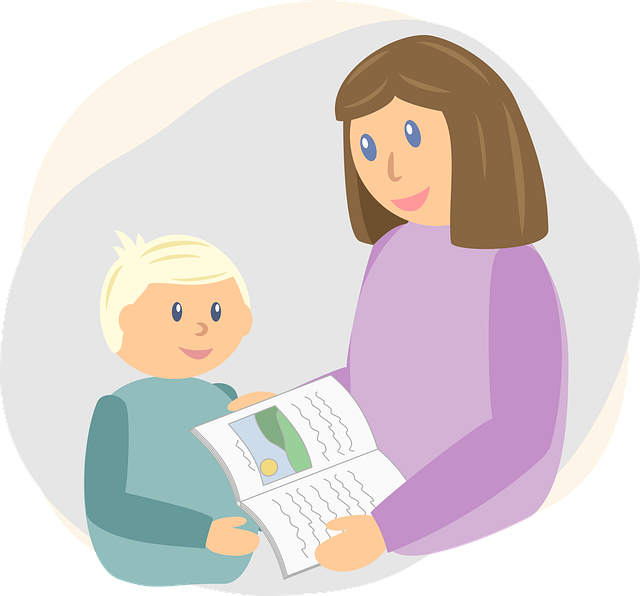Co-parenting after separation or divorce involves creating a stable environment for children by managing the shift to dual-home arrangements through strategic planning and open communication. The focus is on the children's interests, with collaboration over conflict being key. Parents are encouraged to establish clear routines and shared goals for their child's welfare. Co-parenting apps can help manage schedules and facilitate effective communication, reducing misunderstandings. For those facing difficulties, professional support from family therapists or counselors who specialize in co-parenting is available to offer personalized guidance and conflict resolution techniques. Legal frameworks, including parenting plans, are crucial for structuring visitation schedules, decision-making, and financial responsibilities, all within the child's best interests. These plans, often crafted with the help of legal experts, aim to promote a collaborative co-parenting relationship. Additionally, mediators and family therapists can equip parents with communication skills necessary for navigating shared parenting challenges, ensuring the child's well-being is always prioritized. The concerted effort of professionals in this field is vital for maintaining the integrity of the family unit and fostering a strong bond between the parent and child across different households. Effective co-parenting requires a flexible parenting plan that addresses scheduling, decision-making, communication, and conflict resolution, making it essential for parents to seek professional assistance when necessary. Regular updates to the parenting plan ensure it meets the evolving needs of the children and parents alike. By prioritizing open dialogue and mutual respect, co-parents can align on parenting approaches and consistent rules, creating a united front that benefits their children's well-being and development.
Navigating the complexities of co-parenting post-separation can be a challenging journey for any family. As parents, maintaining a harmonious dynamic that prioritizes the well-being of children requires strategic approaches, legal clarity, and emotional intelligence. This article provides valuable insights into expert strategies for managing co-parenting disputes, emphasizing the roles mediation, therapy, and professional guidance play in creating stable and fair arrangements. With a focus on building a cohesive parenting plan that aligns both parties on childcare and conflict resolution, parents can foster a positive and supportive environment for their children.
- Navigating Co-Parenting Challenges: Expert Strategies for Parents to Foster a Harmonious Family Dynamic
- Understanding the Role of Mediation and Therapy in Effective Co-Parenting
- Legal Aspects of Co-Parenting: Ensuring Stability and Fairness with the Help of Professionals
- Building a Cohesive Parenting Plan: Steps to Align on Childcare and Conflict Resolution Strategies
Navigating Co-Parenting Challenges: Expert Strategies for Parents to Foster a Harmonious Family Dynamic

Navigating the complexities of co-parenting can be a challenging endeavor for any parent seeking to maintain a harmonious family dynamic after a separation or divorce. The transition from a single-home to a dual-home arrangement requires careful planning, consistent communication, and a commitment to putting the children’s best interests first. Parents often benefit from expert strategies that focus on collaboration rather than conflict. These strategies include establishing clear and consistent routines, setting shared goals for their child’s well-being, and employing conflict resolution techniques to address disagreements constructively. By doing so, parents can foster a cooperative co-parenting relationship, which is pivotal for the emotional and psychological health of their children.
In addition to expert guidance, utilizing parenting tools such as co-parenting apps or software designed to streamline scheduling, communication, and information sharing can greatly facilitate this process. These digital solutions help keep both parents informed and aligned on the child’s activities, needs, and schedule changes, reducing misunderstandings and promoting a more unified approach to family. Parents should also consider seeking the assistance of a family therapist or counselor who specializes in co-parenting issues. This professional support can provide personalized advice and conflict resolution skills tailored to each unique family situation, ultimately contributing to a healthier, more supportive post-separation environment for everyone involved.
Understanding the Role of Mediation and Therapy in Effective Co-Parenting

When co-parenting arrangements become strained, mediation and therapy can serve as pivotal tools for parents to navigate the complexities of their shared responsibilities effectively. Mediation offers a neutral ground where parents can address conflicts and work towards a resolution with the guidance of an impartial third party. This process helps to facilitate clear communication, ensuring that both parties are heard and understood, ultimately leading to agreements that prioritize the well-being of their child or children. Therapy, on the other hand, focuses on long-term emotional support for parents and can help in resolving underlying issues that may contribute to co-parenting disputes. By fostering healthier coping mechanisms and improved mental health, therapy contributes to a more stable and harmonious family environment. Both mediation and therapy are designed to reinforce the parent-child relationship, encouraging consistent and nurturing care from both households, which is essential for the child’s overall development and well-being within the family.
Legal Aspects of Co-Parenting: Ensuring Stability and Fairness with the Help of Professionals

In the realm of co-parenting, ensuring stability and fairness for the child or children involved is paramount. As parents navigate the complexities of raising a child between two households, legal frameworks provide the structure necessary to support this arrangement. Professionals in family law offer guidance to establish clear parenting plans that outline visitation schedules, decision-making responsibilities, and financial obligations. These legally binding documents are crafted to meet the best interests of the child, ensuring that both parents have a voice in their upbringing without compromising the child’s well-being or safety. The involvement of a legal expert is crucial in resolving any disputes that may arise, thereby fostering a healthy and collaborative co-parenting relationship.
Furthermore, the role of mediators and family therapists cannot be overstated when it comes to maintaining a harmonious co-parenting dynamic. These professionals assist parents in developing communication skills tailored to the unique challenges of co-parenting. By addressing issues such as parental conflict, scheduling conflicts, and the emotional needs of the child, they help create a more stable environment for the child to thrive. Their expertise ensures that all family members are heard and that any solutions reached are in the best interest of the child’s ongoing development and emotional health. Legal professionals, mediators, and therapists collectively work towards upholding the integrity of the parent-child relationship, even amidst the transition from one home to another.
Building a Cohesive Parenting Plan: Steps to Align on Childcare and Conflict Resolution Strategies

Navigating the complexities of co-parenting can be a challenging endeavor for any parent. To ensure a harmonious and effective co-parenting arrangement, it is crucial to construct a detailed and adaptable parenting plan. This plan should outline specific schedules, decision-making processes, communication protocols, and conflict resolution strategies. By establishing clear guidelines, parents can minimize misunderstandings and conflicts, fostering a stable environment for their children. It’s advisable to involve legal professionals or mediators who specialize in family dynamics during this process. Their expertise can guide parents in creating a comprehensive plan that addresses the needs of both the children and the adults involved, thereby promoting a cooperative parenting relationship.
In crafting this parenting plan, parents should prioritize open dialogue and mutual respect. This involves setting boundaries, understanding each other’s parenting styles, and agreeing on consistent rules and discipline methods across both households. Regularly revisiting the plan to make necessary adjustments is also key, as children’s needs change over time. By staying aligned and responsive to these changes, parents can maintain a cohesive approach to childcare that supports their children’s well-being and growth. Utilizing professional guidance during this process not only facilitates a smoother transition into a co-parenting dynamic but also lays the foundation for long-term amicability and effective conflict resolution.
In concluding this discourse on co-parenting disputes, it is clear that enlisting expert guidance is a pivotal step for parents aiming to navigate the complexities of post-divorce or separation dynamics. The strategies discussed, from leveraging mediation and therapy to crafting a well-aligned parenting plan, underscore the importance of collaboration and mutual respect in fostering a harmonious family environment. Legal professionals play an integral role in ensuring stability and fairness for all involved. Ultimately, the goal is to create a supportive system where each parent can effectively contribute to their child’s upbringing, prioritizing the well-being and growth of the family as a whole.
